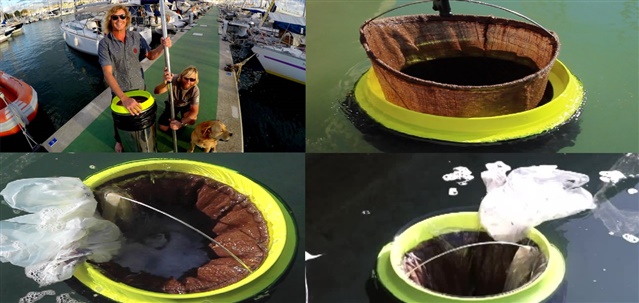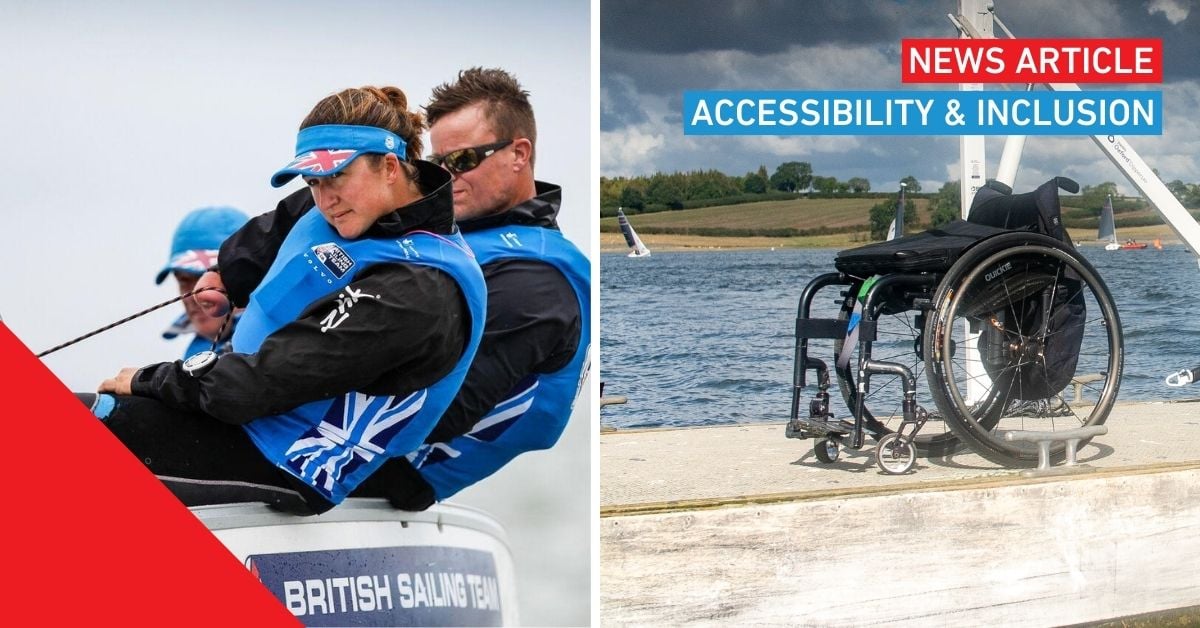What help is there towards cleaner marinas?
This is a follow-up to the recent article about clean marina schemes, but this time we will look at some ideas and products that are available to help marinas and boaters to keep their local waters as clean as possible.
The Seabin solution coming soon…
First up is the product that will soon be in demand by just about every marina in the world because it is just about to go into production after several years of extensive research and development.
The Seabin, an in-water marine rubbish collector, is a product idea started by two keen Australian sailors; their passion for clean oceans and their abject horror at seeing so much floating pollution in the sea, motivated them to come-up with a tailor-made solution for marinas and enclosed harbours.
The Seabin consists of a specially developed ‘catchment’ net in a cylindrical container. Under this sits a submersible pump, which creates a surface water flow, literally pulling the floating debris into the net.
The ‘catch’ is an estimated 1.5 Kgs of floating debris per day, which equates to over a half tonne of debris per year for each Seabin. The catch bag can hold up to 12Kgs of debris before it has to be emptied, and a percentage of oil can be captured with simple oil absorption technology. This is then incorporated into the fabrication of the netting.
Railstar catches the drip…
Railstar is a concept developed by Scott van Allen, who has spent much of his career as a skilled yacht varnisher and calls himself an Ecopreneur in Blue Economy.
Scott recognised the huge amount of dust, scrapings, paint drips, and general debris, that can enter the water from preparing and varnishing wooden capping rails that run around the decks of yachts, a job that is often done by crew or contractors in enclosed harbour areas.
The Railstar frame can be attached to any section of the yacht, from the bulwarks to handrails, making it a simple but valuable product for keeping preventable hazardous materials out of the oceans. Scott estimates that this can amount to +25 kg for the capping and toe rails on a typical 50 metre yacht, and double that if the caulking is removed!
‘Grey water’ from yachts, most of us can do better…
Black water, (raw sewage from boat toilets) is being much more comprehensively dealt with by modern legislation. This aims to ensure that holding tanks are fitted, especially on new boats, and that there are pump-out stations provided ashore for emptying said tanks. But in the majority of cases (especially from smaller yachts), the grey water discharge from sinks and showers goes directly into the water, as does any detergent that is used for cleaning the exterior of the boat.
Eco-conscious organisations advise that we should not think about the sink and shower outlet on our boat in the same way as the ones we have at home. Otherwise, the effects on water quality and sustainability of marine life can be quite harmful, especially in the enclosed waters of a marina or harbour.
The RYA Green Blue project advises us all to think carefully about what products we use for washing up, showering and general cleaning onboard, especially these days, when eco-friendly products containing less harmful and more natural ingredients, are much more widely available.
A built-in solution for grey water output…
For an automatic, albeit more expensive solution that will give smaller boat owners complete peace of mind, it is possible to install an inline grey water filtration, such as the Wavebrite system from Wave International.
This consists of a modular four-stage filtration system, which eliminates potential pollution from sink and shower grey water discharge, and is said to meet EU Council Directive (91/271/EEC) concerning waste water treatment.
Wave International also produce an inline filtration system for cleaning bilge water before it is pumped overboard.
Keeping fuel and oil out of the marina waters…
One pint (2 cups) of oil released into the water can spread into a 1-acre oil slick, which is larger than a football field! None of us want to see that, and the marine life that we all want to see thrive certainly do not need it.
Trying not to spill petrol or diesel by using an absorbent sock around the filler when taking on fuel and placing an oil absorbent ‘mini boom’ in your bilge, are easy and cheap things to do.
There is even a 10 litre marine oil and fuel spill kit available from a UK company called Serpro. This comes complete with everything you need to clean up an accidental spill for a price of £12.50, which is less than the cost of a few litres of fuel. Surely every leisure boat should carry one?
The above is just a small selection of ideas and products that may help us to keep marinas cleaner and healthier, there are plenty more, and we would love to hear about them from METSTRADE Community members.
Do you have product ideas, case stories, and practical tips to share?
Please leave them in the below comment box….Many thanks!
Share your stories on leisure marine industry with us
Do you have an innovation, research results or an other interesting topic you would like to share with the leisure marine equipment industry? The METSTRADE website and social media channels are a great platform to showcase your stories! Let us know via metstrade@rai.nl
Are you a METSTRADE exhibitor?
Make sure you add your latest press releases to your Company Profile in the Exhibitor Portal for free exposure.





